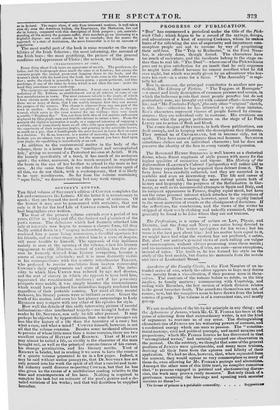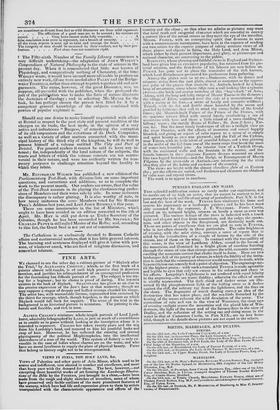We are no admirers of the bit-by-bit principle in any
thing; and the Aphorisms if Junius, which Mr. G. T. FISHER has been at the pains of selecting from that extraordinary writer, is not the kind of argument to convince us of our error. The distinguishing characteristics of.lisitus are his withering powers of sarcasm, and a condensed energy which amounts to passion. The " constitu- tional maxims, civil and political precepts, and moral maxims and propositions," which Mr. FISHER fancies he has discovered in that "accomplished writer," had certainly escaped our observation in the perusal. On the contrary, we thought that some of the general positions of Jusaus were questionable, and many mere truisms, deriving all their force from the aptness and felicity of their application. We had no idea, however, that, when separated from the context, they would appear so very commonplace as many of them do, even allowing for Mr. FISHER'S parings and alterations.. Amongst the other uses of this little tract, its compiler conceives that," to persons engaged in political and electioneering discus- sion, the work may prove a ready resource." But only think of a gentleman mounting the hustings and spouting such oracular maxims as these!— The favour of princes is a perishable commony Suppositieng are sometimes as distant from fact as wild discourses are from solid argument. . .. . The afflictions of a good man are to be revered ; his sorrows are
sacred Gray hairs cannot make folly venerable A false conclusion is an error in argument, not a breach of veracity. . . Of all the vices, avarice is most apt to taint and corrupt the heart The integrity of men should be measured by their conduct, not by their pro-
fessions Fact alone does not constitute right.



























 Previous page
Previous page